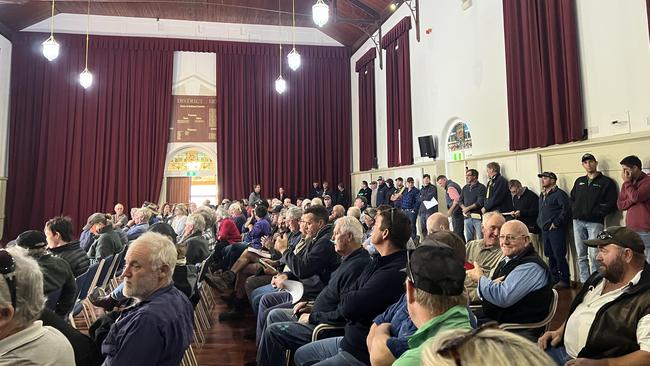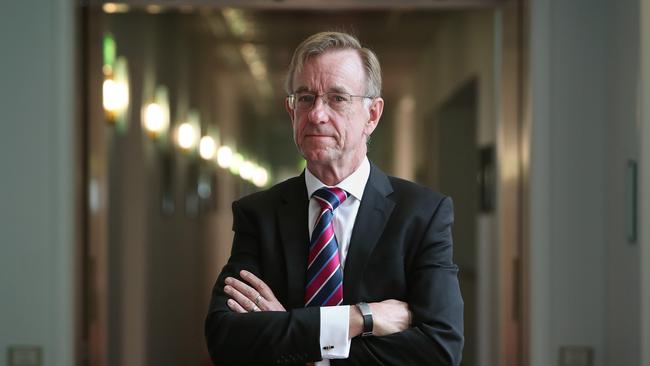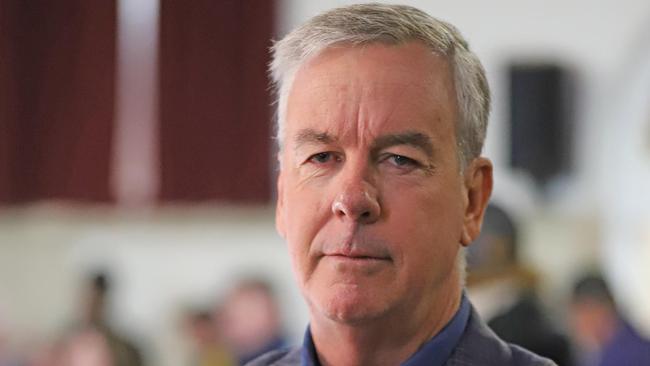Farmers snubbed by sheepish live export phase-out panel
WA producers are fuming over the government’s “shambolic” handling of live export consultation meetings, called with no advance notice.
The nation’s live sheep export industry may be standing on one figurative leg, but a ‘snub’ by the federal government’s phase-out panel has farmers jumping up and down.
In fact, seven transition meetings planned for the industry’s heartland in regional Western Australia this week were so badly communicated that Live Sheep Export Consultation Panel chair Phillip Glyde later admitted that “this hasn’t gone so well”.
It is believed that the panel’s secretariat invited industry stakeholders in the last two weeks to meet with the panel.
However, hundreds of producers dropped seed and feed buckets for a last-minute dash to storm the meetings and defend their livelihoods as news crackled on the bush telegraph and social media that they were on.
Even Western Australia’s Labor Agriculture Minister Jackie Jarvis was left out in the cold and said she had already expressed her disappointment with federal Agriculture Minister Murray Watt’s office.
“I only found out about the sessions … late Sunday afternoon; obviously my calendar was already full, so I haven’t been to any of the sessions,” she said.

Mr Glyde, who was appointed last month to head the panel by Mr Watt, told media that “we got it wrong with how we went about the live export consultation”.
“We thought we would reach out to grower groups and their networks so we could consult with them and they would feed that information back to their members,” he said.
“That hasn’t gone so well and people have been very alarmed that this is the only opportunity to engage with the panel. It is not.”
However, those future engagements appear likely to be restricted to cyberspace with the department promising to communicate details of “virtual forums” to be held in May “to reach a wide audience of stakeholders and provide an open opportunity for participation in the consultation.”
The federal government recently reconfirmed its promise to stop live sheep exports.
While acknowledging the difficulty of the panel’s task, Australian Livestock Exporters’ Council chief executive Mark Harvey-Sutton said the panel’s failure to notify producers of the meetings demonstrated “a lack of appreciation of the importance of an industry” that employs 3000 people, mainly in Western Australia.

“The whole thing has been shambolic, disrespectful and contemptuous,” he said.
“If the panel wanted to be taken seriously this is not how you do it.
“They had 15 chairs set out at Moora and more than 100 people turned up with less than 24 hours’ notice.
“Word of mouth is obviously working better than the agriculture department. People are showing up because they are angry and not wanting to discuss a transition. They want to discuss retaining their industry and this was a huge snub to them.
“The community sentiment is strong against a policy that is just giving in to an activist agenda, particularly when it is clear that it is aimed at winning seats in eastern Australia and not country WA.”
The panel have been busily changing venues over recent days to much bigger rooms, such as the church hall been switched to a recreational centre.
Narrogin MP and WA’s shadow forestry minister Steve Martin, who only found out about Tuesday’s meeting the night before through a shire council contact, told The Weekly Times that “if they had of tried to make the process worse they would have really struggled”.
“Every single thing they did in the last week has been a cock up,” he said.
“The panel clearly wanted to fly in and out quietly without meeting farmers and they have misjudged the mood, they were looking sheepish at the meeting and clearly won no friends. It is a farce of a transition process.”
The Narrogin meeting was initially booked to be held in the mayoral parlour within the council building that has a capacity of about 45. On Tuesday morning 150 farmers were at the door.

“They had to scramble for a new venue, there were still dozens standing against the back wall during the meeting. They didn’t have a microphone and you have quietly spoken (Phillip Glyde) up the front, so they had to find a microphone,” Mr Martin said.
“We’ve had a lovely start to the season, but they’ve timed it for when producers are seeding, most had less than a day’s notice and, despite that, they’ve filled up the halls.
“It was a really good turn-out under the circumstances, but it should have been three times bigger at least. More than 90 per cent were producers and Murray Watt needs to visit Western Australia and come to these meetings and look these producers in the eyes.”
Mr Martin also said the meeting sign-in process only required attendees to leave names and email addresses and “they didn’t appear to be writing down who was speaking or even recording it”.
He said that while the panel covered the Great Southern region, those in the Wheatbelt would need to drive for several hours to attend the meetings.
Meanwhile, the National Farmers’ Federation Members’ Council this week unanimously voted against the phase-out as attendees reiterated the red line issue with Mr Watt and Assistant Trade Minister Tim Ayres.

“Our members from every industry, and every part of the country, remain gravely concerned about this policy. We heard both ministers talk about growing trade and using evidence to drive the future of agriculture in Australia,” NFF President Fiona Simson said.
“We’ll continue to call on the government to back up their rhetoric and provide evidence for their decisions.
“Every part of the farm sector is nervous that a government could fall victim to the ideology and misinformation of radical activists rather than back farmers and simply act on the evidence.”
A spokesman for the Federal Department of Agriculture said it should not be inferred from Mr Glyde’s comments that it was wrong for the panel to seek targeted gatherings of stakeholders to listen to industry leaders.
“The meetings weren’t secret nor unannounced. They weren’t intended by the panel to be large town hall meetings,” the spokesman said.
“The panel has adjusted its approach to the meetings and warmly welcomed and engaged with everyone who has attended its meetings. The meetings have been carried out respectfully.”




